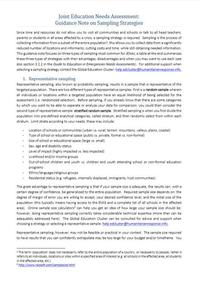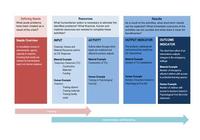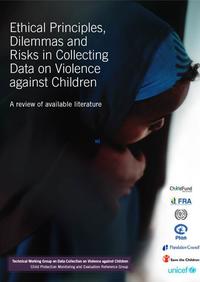Resources
Request support on coordination, information management, capacity development or other education in emergencies areas.
Demande de soutien en coordination, gestion de l’information, développement des capacités et autres domaines de l'éducation en situation d'urgence.
لطلب الدعم في مجال التنسيق ، إدارة المعلومات ، تنمية القدرات أو في اي مجال من مجالات التعليم في مناطق الطوارئ
Solicitar apoyo en coordinación, gestión de la información, desarrollo de capacidades u otra áreas en educación en emergencias.
Featured Resources
below you can find selected tools

COVID-19 Resources
View resources to support education in emergencies coordination during the COVID-19 pandemic.

Guidance on Education Cluster Co-Leadership Arrangements at the Country Level
Indicative Guidance for the establishment and management of co-leadership arrangements at the country level.

Inter-agency Network for Education in Emergencies
For technical education in emergencies resources, please visit the INEE website.
IOM Displacement Tracking Matrix (DTM) for the Education Cluster: A Guidance
Guidance on obtaining useful data from IOM’s Displacement Tracking Matrix (DTM) to inform emergency education planning and response
- Coordination: Needs Assessment, Information Management
- HPC: Implementation & Monitoring, Needs Assessment & Analysis, Strategic Planning
Guide to Education in Emergencies Needs Assessments
The purpose of the Guide and Needs Assessment Packages to provide practical, relevant guidance and resources to education in emergencies (EiE) coordination staff conducting, coordinating and participating in secondary data reviews and joint, harmonized and/or multi-sector needs assessments.
- Coordination: Needs Assessment, Inter-Sector Coordination
- HPC: Needs Assessment & Analysis
- Technical Areas: Accountability to Affected Populaiton, Localisation
Guidance Note on Sampling Strategies
Sampling is the process of collecting information from a subset of the entire population; this allows you to collect data from a significantly reduced number of locations and informants, cutting costs and time, while still obtaining needed information. This guidance note focuses on three types of…
- Coordination: Needs Assessment, Information Management
- HPC: Needs Assessment & Analysis
Guidance Note on Data Visualization
A useful guidance document to help you select the best chart to visualise your data.
- Coordination: Needs Assessment, Information Management
- HPC: Implementation & Monitoring, Needs Assessment & Analysis
Calculating People in Need Guidance
Guidance and instructions to help coordination teams calculate people in need of EiE.
- Coordination: Cluster Strategy, Needs Assessment, Information Management
- HPC: Needs Assessment & Analysis, Strategic Planning
Defining an Indicator
This document is intended to help you develop SMART indicators.
- Coordination: Needs Assessment, Information Management
- HPC: Implementation & Monitoring, Needs Assessment & Analysis, Strategic Planning
Participatory Approaches
Using participatory approaches in impact evaluationmeans involving stakeholders, particularly the participants in a programme or those affected by a given policy, in specific aspects of the evaluation process. The term covers a wide range of different types of participation, which differ in terms…
- Coordination: Coordination, Needs Assessment
- HPC: Needs Assessment & Analysis
- Technical Areas: Accountability to Affected Populaiton
Ethical Research Involving Children
This compendium, together with the associated website (see: http://childethics.com), has been specifically designed to provide a rich repository of evidence-based information and resources to guide and improve research involving children.
- Coordination: Needs Assessment
- HPC: Needs Assessment & Analysis
- Technical Areas: Accountability to Affected Populaiton
Ethical Principles, Dilemmas and Risks in Collecting Data on Violence against Children
Ethical guidelines are crucial when carrying out research on violence against children (VAC). This literature review is a contribution to the foundations for the development of such ethical guidelines. It aims to capture current thinking around ethical issues and provide empirical support to guide…
- Coordination: Needs Assessment
- HPC: Needs Assessment & Analysis
- Technical Areas: Protection
The Child Friendly Community Assessment Tools: A Facilitator’s Guide to the Local Assessment of Children’s Rights
This guidebook describes a detailed step-by-step process for broadly assessing and monitoring children’s living conditions in communities of cities and towns of different sizes as well as in rural communitie. The assessment process outlined in the guidebook enables the collection of community level…
- Coordination: Needs Assessment
- HPC: Needs Assessment & Analysis
- Technical Areas: Protection
Filter results
Coordination(selected )
Country(selected )
Humanitarian Programme Cycle(selected )
Language(selected )
Publication Date(selected )
Publisher(selected )
Resource Type(selected )
Technical Areas(selected )
Can’t find what you’re looking for?
Contact your relevant language Help Desk










